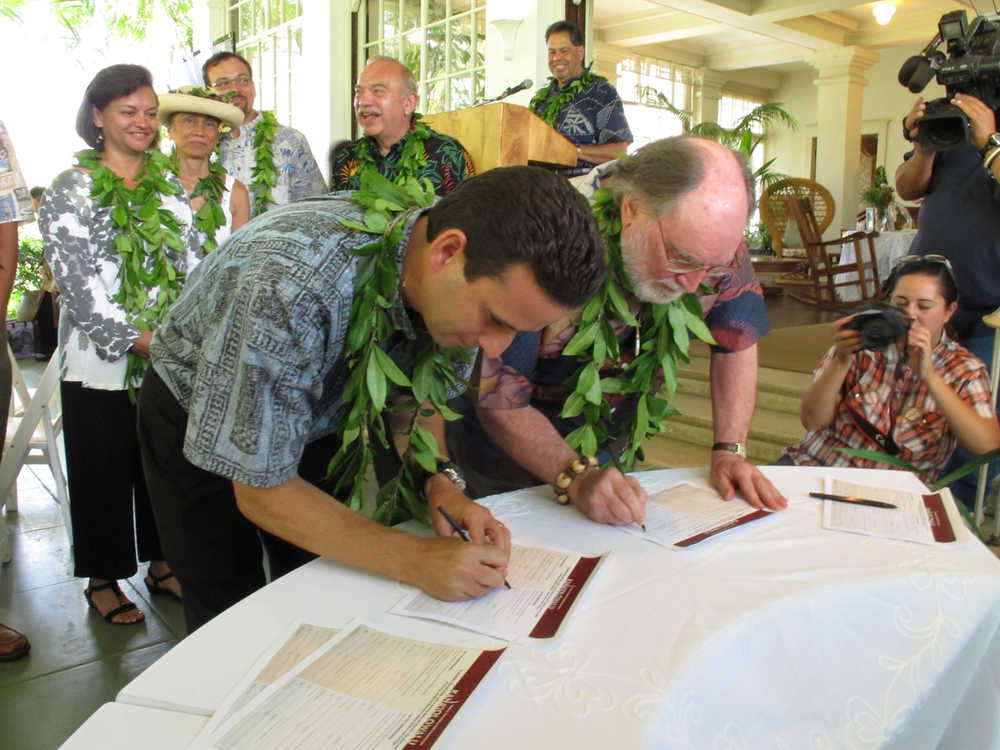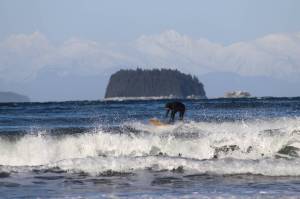Lawsuit, divisiveness hamper Native Hawaiian election effort
Published 8:00 am Tuesday, October 20, 2015
HONOLULU — A group of Native Hawaiians are organizing an election to create a national government for the first time since American businessmen, backed by U.S. Marines, overthrew the Hawaiian kingdom more than 100 years ago.
They are trying to elect delegates for a convention next year to hash out a governing document that will go back to the Native Hawaiian community for ratification, but their plan is already facing resistance — from Native Hawaiians themselves.
A federal judge on Tuesday will consider an injunction motion in a lawsuit that argues that it’s unconstitutional to restrict voting to those with Native Hawaiian ancestry and that the state is improperly involved in the process.
Native Hawaiians are the last remaining indigenous group in the U.S. that hasn’t been allowed to establish its own government.
Former U.S. Sen. Daniel Akaka spent about a dozen years trying to get a bill passed that would give Native Hawaiians the same rights already extended to many Native Americans and Alaska Natives.
When it became clear that wouldn’t happen, the state passed a law recognizing Hawaiians as the first people of Hawaii and laid the foundation for Native Hawaiians to establish their own government.
The governor appointed a commission to produce a roll of qualified Native Hawaiians interested in participating in their government.
Some of the plaintiffs in the lawsuit argue that their names appear on the roll without their consent.
The process has been rushed and confusing, critics say. “It’s a shotgun wedding of self-determination,” said Native Hawaiian community advocate Trisha Kehaulani Watson-Sproat.
Molokai activist Walter Ritte planned to run as a delegate, deciding it’s better to participate even though he disagrees with the process. But when he saw that the list of candidates includes politicians and those who support federal recognition instead of forming an independent nation, he changed his mind.
“I don’t want people to say, ‘Well you were part of it,’” he said. “I have no faith in the system so I’m taking my name out.”
There are some 200 candidates for 40 positions representing Hawaiians across the state and those living outside of Hawaii.
Supporters of the election agree that the process hasn’t been perfect.
“But it’s an opportunity that rarely comes around,” said Bill Meheula, an attorney who will argue in court Tuesday on behalf of Nai Aupuni, a nonprofit organization made up of five directors guiding the election, convention and ratification process.
Watson-Sproat is skeptical of the people behind Nai Aupuni: “Who picked these people?”
“We are individuals who decided we want to commit ourselves to the process,” Meheula said. “Someone had to stand up and it couldn’t be a state agency. We were individuals that were able to come together and get a grant.”
The Office of Hawaiian Affairs, a public agency tasked with improving Native Hawaiians’ wellbeing, provided a nearly $2.6 million grant for the election, with the understanding that the office wouldn’t have any control over Nai Aupuni.
Some liken the election to selecting the founding fathers and mothers of a modern Hawaiian nation.
“Founding parents, if you will,” said Clyde Namuo, executive director of the Native Hawaiian Roll Commission and a delegate candidate, noting that the founding fathers of the U.S. organized the 13 colonies to escape British oppression.
Self-determination is a way for Native Hawaiians to address longstanding concerns in the community, he said: They fare poorly when it comes to income, education and health.
“The western way of life has not necessarily been good to us,” he said. “We will be able to control our destiny in a better way if we form our government.”
Until the 1893 overthrow, the U.S. recognized the Hawaiian nation’s independence, extended full diplomatic recognition to the Hawaiian government and entered into several treaties with the Hawaiian monarch.
The U.S. annexed Hawaii five years later, and it became a state in 1959.
Native Hawaiians have long clamored for self-determination, but the options and opinions on what that looks like vary — from federal recognition, to restoring the kingdom to dual citizenship.
Last month, the U.S. Department of the Interior outlined a proposal for a possible government-to-government relationship with Native Hawaiians — if they want one.
The department has also weighed in on the lawsuit, urging the judge not to grant an injunction by pointing out that Native American tribes hold elections that exclude non-natives.
Ritte doesn’t want Hawaiians to be another tribe.
“We don’t have the same history as Indians,” he said. “The choice is to go down and be closer to the United States of America, who overthrew our queen, or avenge our queen and correct an injustice.”





